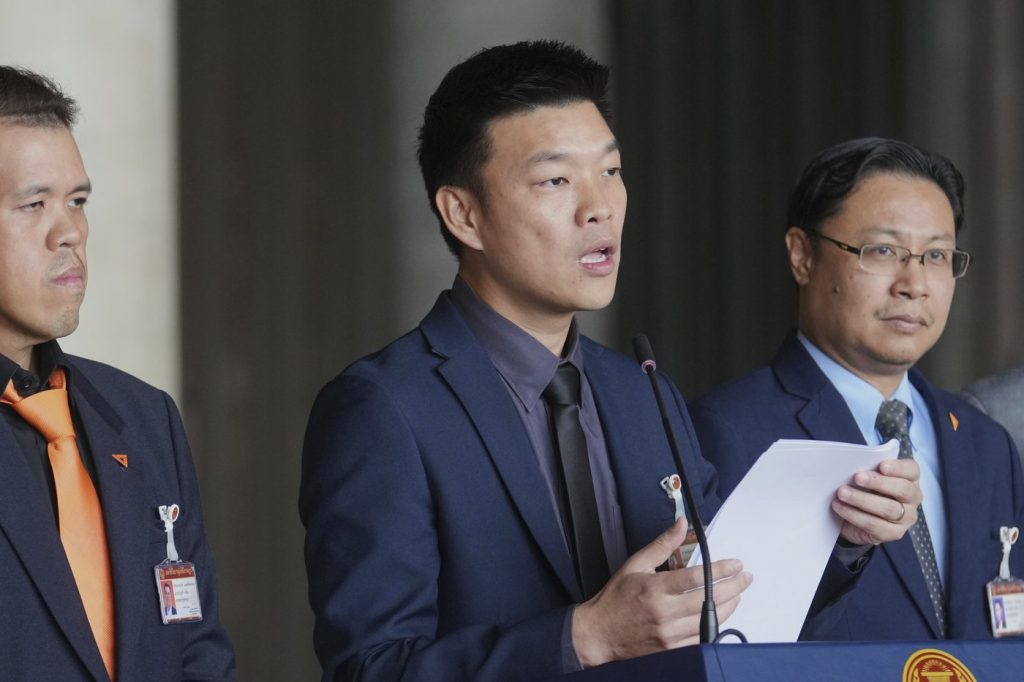BANGKOK (AP) - In Thailand, which has been operating under a caretaker government since last week, two opposing strategies emerged on Wednesday to address the ongoing political crisis. The main opposition party announced its support for a rival to assume the role of the next prime minister, while the ruling Pheu Thai party is advocating for a new election.
The Pheu Thai party, currently at the helm of the caretaker government, stated it is requesting the dissolution of Parliament by the king to initiate a new election rather than allowing the current House of Representatives to vote for a new prime minister. There has been no date set for the parliamentary vote, and it remains uncertain if the king will approve this dissolution.
Last week, the Constitutional Court dismissed Paetongtarn Shinawatra from the position of prime minister for violating ethics laws in a controversial phone call with Cambodia's Senate President Hun Sen concerning territorial disputes along their shared border, which escalated into violent conflict in July.
In Thailand, only King Maha Vajiralongkorn has the authority to dissolve Parliament. However, the Council of State, which serves as a legal advisory body, indicated that a caretaker prime minister cannot call for dissolution unless a deadlock occurs during a vote for a new prime minister.
On Wednesday, the People's Party, the largest party within Parliament, revealed that its lawmakers would support Anutin Charnvirakul, the leader of the Bhumjaithai party, as the prospective next prime minister. People's Party leader Natthaphong Ruengpanyawut criticized the Pheu Thai party for its perceived inefficacy during its two-year governance.
This support from the People's Party is conditional and based on an agreement that includes stipulations such as the new government committing to dissolve the House of Representatives within four months and calling for a general election. Additionally, an Anutin-led government would be tasked with organizing a referendum aimed at amending the constitution to facilitate a new constitutional draft by an elected constituent assembly. The People's Party has long championed constitutional reforms rooted in the military's imposition of the current framework, advocating for a more democratic system.
Acting Prime Minister Phumtham Wechayachai, who is seeking a royal decree to dissolve Parliament, cautioned of economic dangers arising from a prolonged political crisis. He asserted, "With all of these problems, our lawmakers think we should return power to the people and let the people decide."
The People's Party, previously known as Move Forward Party, achieved significant success in the 2023 elections but faced barriers to power due to a joint vote from the House and the Senate that failed to approve its candidate. Senate members, who were appointed during a military regime and hold strong ties to Thailand's conservative royalist establishment, opposed the progressive policies of the People's Party, especially its proposals for reforms regarding the monarchy.
Following this, the Pheu Thai party was able to gain approval for its candidate, Srettha Thavisin, a real estate executive, to serve as prime minister leading a coalition government. Unfortunately, his tenure lasted just one year before the Constitutional Court dismissed him due to ethical breaches.
His successor, Paetongtarn Shinawatra, also endured a brief stint in office. Prior to her ousting, her government had already been significantly weakened after Anutin's Bhumjaithai party withdrew from her coalition right after her controversial call with Cambodia's Hun Sen. This pullout resulted in the Pheu Thai party holding a precarious majority in Parliament.











